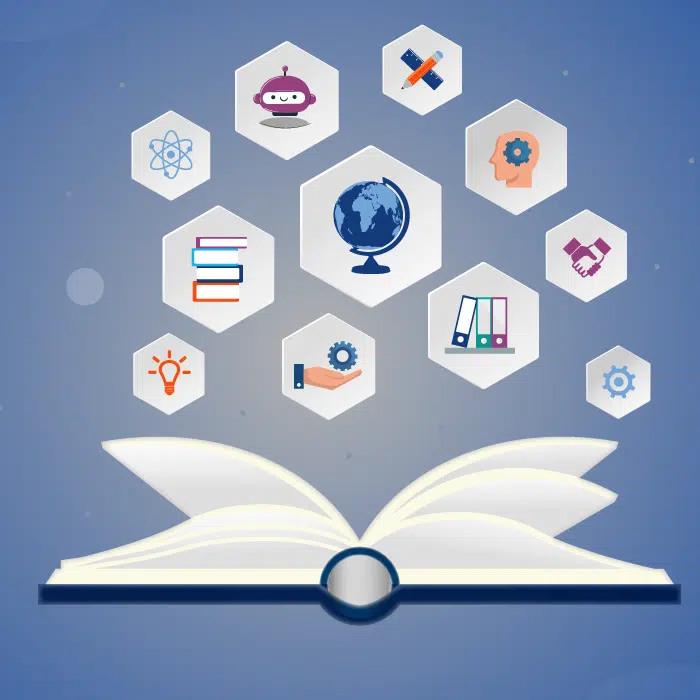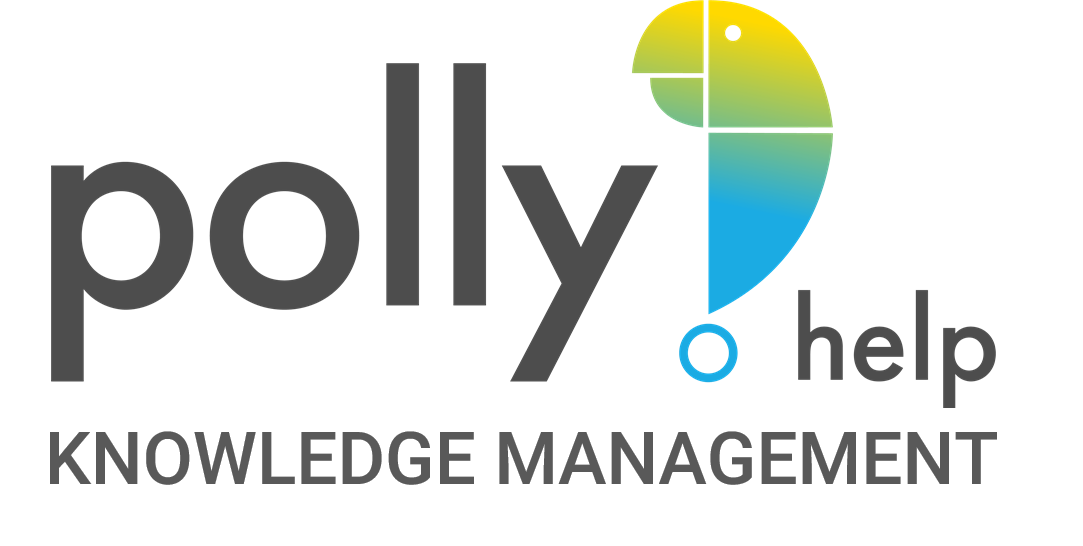In today’s rapidly evolving business landscape, the fusion of knowledge management in HR has become a game-changing strategy. Fostering an environment of organizational learning is not just beneficial; it’s imperative to outpace the competition. The inclusion of a robust HR knowledge management system is essential in the smooth dissemination and retention of vital company policy information, thereby enhancing overall organizational efficiency.
Employees, time and again, have voiced their frustrations over the lack of access to timely information on company policies – a gap that begs for a decentralized knowledge solution. By integrating strategic human resource management (SHRM) practices that prioritize knowledge sharing, companies can streamline elements like recruitment and onboarding, adapt in real-time to updates, and more closely align HR processes with strategic business goals. Reflecting a sound SHRM policy in place is a workforce that notably exhibits higher retention rates and a stronger alignment with the company’s core objectives.
Key Takeaways
- Implementing knowledge management in HR fosters a culture of continuous organizational learning.
- The development of a decentralized HR knowledge management system is crucial for timely and efficient information sharing.
- Strategic human resource management is key to aligning HR practices with the larger business strategy and goals.
- Enhanced knowledge sharing leads to better recruitment and onboarding experiences, increasing employee retention.
- A robust SHRM system supports compliance with laws and aids in setting clear organizational goals.
Decentralizing Organizational Knowledge to Empower HR Functions
In the modern workplace, success hinges on the ability to navigate and manage a sea of information effectively. For HR departments, the transformation towards a decentralized knowledge infrastructure is a strategic move that reshapes how talent is managed and developed within organizations. Such decentralization is rooted in the concept of a knowledge repository — a dynamic and accessible digital brain that captures, curates, and conveys essential HR data and policies.
Creating an Accessible Documentation Repository
Establishing a centralized, yet decentralized, knowledge repository is at the heart of empowering HR teams. This repository serves as the cornerstone of HR data management, offering a robust database of HR processes, best practices, and policy documentation. HR professionals can thus concentrate their expertise on strategic initiatives rather than spending invaluable time tackling repetitive inquiries.
Streamlining Recruitment and Onboarding Processes
Recruitment efficiency and streamlined onboarding are the immediate beneficiaries of a well-implemented knowledge management system. Candidates and new hires gain an impression of a tech-savvy, organized company committed to providing a transparent and informative induction experience. This leads to enhanced employee engagement from day one and sets the stage for enduring loyalty and higher retention rates.
Ensuring Real-Time Policy Updates
Adaptability and responsiveness are key in today’s fast-paced corporate environment. Real-time policy updates in the knowledge repository mean that every policy change is instantly available company-wide, promoting compliance and minimizing the risk of outdated information circulating amongst staff. Decentralized knowledge platforms, like Polly.Help & Document360, enshrine this adaptability, giving HR professionals the flexibility to manage and update documents as needed.
The Strategic Importance of SHRM in Today’s Workplace
Understanding the strategic human resource management (SHRM) is crucial in the contemporary business landscape. SHRM serves as the backbone for aligning HR policies and practices with the overarching business strategy, which is imperative for long-term organizational success. With SHRM importance being more pronounced than ever, it’s essential that leaders focus on the strategic aspects such as workforce development, talent attraction, and employee performance analysis to sustain a competitive edge.
At its core, SHRM provides a systematic approach to managing people in a way that supports businesses in facing the diverse challenges of today’s dynamic environment. It goes beyond mere HR activities and intersects with all facets of a business, ensuring that the growth of employees is aligned with corporate goals. The adoption of SHRM practices guarantees a multitude of benefits that translate into tangible business outcomes.
- It spearheads effective talent attraction, thereby ensuring that the organization is equipped with a skilled and capable workforce ready to meet current and future demands.
- SHRM facilitates workforce development through planned learning initiatives and leadership training programs, empowering employees to contribute meaningfully to organizational objectives.
- With a robust employee performance analysis system in place, SHRM enables companies to recognize and reward contributions, fostering a culture of excellence and continuous improvement.
Below is a detailed depiction of how SHRM practices influence key aspects of human resource management:
| Aspect | Impact of SHRM |
|---|---|
| Recruitment & Selection | Strategically aligns talent acquisition with business needs, optimizing the quality of new hires. |
| Training & Development | Facilitates continuous skill upgrades and leadership development, tailored to evolving business strategies. |
| Performance Management | Deploys data-driven approaches to track and enhance employee performance, driving accountability and growth. |
| Compensation & Benefits | Designs incentive systems that align with organizational goals, promoting a performance-oriented culture. |
| Compliance | Ensures adherence to labor laws and regulations, thereby minimizing legal risks and fostering an ethical workplace. |
Integrating strategic human resource management within an organization is not just beneficial; it’s a necessity in a landscape characterized by rapid change and intense competition. By emphasizing SHRM importance, businesses are well-positioned to develop their workforce, attract superior talent, and systematically analyze and enhance employee performance. This strategic orientation within HR functions acts as a catalyst for sustainable growth and market adaptability.
Knowledge Management Human Resources: Sustaining Organizational Memory
The advent of knowledge management in Human Resources has become a cornerstone for perpetuating organizational memory, a crucial component of a company’s competitive edge. This approach not only preserves valuable corporate knowledge but also boosts overall HR productivity and knowledge management effectiveness.
The Role of a Knowledge Repository in HR Efficacy
An HR knowledge repository is pivotal in capturing the tacit and explicit knowledge that forms the backbone of an organization. By ensuring that critical processes, best practices, and corporate expertise are not confined to any single employee, the repository acts as a guard against knowledge attrition due to staff turnover. Key information—ranging from compliance protocols to innovative solutions—is archived, forming an intellectual repository that lays the groundwork for informed decision-making.
Enabling HR Productivity through Self-Service Solutions
Aiding in the cultivation of self-reliant workforces, self-service HR platforms are more than just convenience tools—they’re strategic assets that enhance staff autonomy. Employees can effortlessly obtain information and complete routine tasks, which in turn decreases the dependence on HR professionals for everyday inquiries. This not only accelerates response times but also allows the HR team to dedicate more effort to strategic initiatives, driving organizational growth and success.
| Feature | Description | Benefit |
|---|---|---|
| Employee Self-Update | Staff manually update their personal information. | Reduces HR data entry tasks and improves data accuracy. |
| Access to Policies and Procedures | Instant, 24/7 access to updated HR documents. | Ensures staff is well-informed and policies are consistently applied. |
| Benefits Management | Employees review and manage their benefits online. | Empowers staff to take charge of their benefits, leading to higher satisfaction. |
| Leave Requests and Approval | Electronic submission and tracking of leave requests. | Streamlines leave management and reduces paperwork. |
| Training Modules | Online learning resources for continuous development. | Facilitates ongoing employee growth and knowledge expansion. |
Applications of HR Knowledge Management for Operational Excellence
The incorporation of HR knowledge management applications into the fabric of a company leads to a paradigm shift towards operational excellence in HR. These technological solutions support a spectrum of strategic functions that streamline internal operations and enrich the corporate knowledge base. Leveraging these applications results in not only heightened corporate knowledge enhancement, but also fosters an environment where best practices in HR are evolved and shared across the organization. Below, we delve into the various applications of these systems, highlighting their transformative impact on HR departments.
- Enhanced Access Control: Tailored permission settings allow for secure, role-based access to sensitive HR documents, diminishing the risks of unauthorized edits or data breaches.
- Optimized Onboarding: New employees experience a seamless introduction to the company, with all necessary information meticulously documented and easily accessible, thus accelerating their path to full productivity.
- Centralized Query Resolution: A unified platform for HR queries reduces the need for repetitive direct inquiries to HR staff by providing a reliable source of common company questions and answers.
- Up-to-Date Policy Communication: Real-time updates to company policy are distributed error-free, ensuring all employees have access to the current regulations and guidelines.
- Advanced Search Capabilities: Cutting-edge search functionalities within HR systems mean employees find the information they need with speed and ease, reducing down-time and increasing HR service responsiveness.
A crucial element of KM strategies is not merely information storage but the retrieval and utilization of knowledge to inform decision-making processes. By providing in-depth analytics on employee engagement with HR resources, knowledge management systems contribute valuable insights that lead to better-informed strategic decisions, thereby contributing actively to organizational learning and improved HR outcomes.
| KM Application | Benefits | Impact on Operational Excellence |
|---|---|---|
| Customized Access Control | Heightened security, precise documentation management | Robust data protection and streamlined knowledge exchange processes |
| Onboarding Optimization | Faster acclimatization of new hires, comprehensive resource access | Higher employee retention and quicker time-to-competency |
| Centralized Information Source | Consistent answers to frequently asked questions | Decreased workload on HR staff, increasing focus on strategic tasks |
| Error-Free Policy Distribution | Accurate, up-to-date policy dissemination | Reduced miscommunications and policy non-compliance issues |
| Improved Search Functionality | Quick access to relevant HR data and documents | Enhanced efficiency and employee satisfaction with HR services |
Overall, HR knowledge management applications are indispensable in achieving and sustaining operational excellence in HR. By integrating KM tools and strategies, HR departments are better positioned to drive positive change and foster a knowledge-centric culture that resonates with the entire organization.
In conclusion, the strategic application of knowledge management in HR processes is crucial for improving the flow of information, enhancing employee experiences, and ultimately leading to more sophisticated and well-informed business operations.
Tailoring Access Control and Permission Settings in HR Systems
Establishing robust access control in HR systems is not just about enforcing security protocols; it’s also about optimizing the effectiveness of the Human Resources department. Rigorous permission settings ensure that sensitive information remains secure while allowing sufficient accessibility for team members to perform their roles effectively. Customizing access through role customization and maintaining a meticulous log of documentation underscores the critical nature of documentation accountability and overall HR system security.
Customizing Team Member Roles and Permissions
Enhancing HR system security begins with defining and allocating roles tailored to the responsibilities and needs of each team member. Role-based permission settings are integral to maintaining the integrity of HR documentation, as they restrict modifications to qualified personnel only. Such bespoke role configurations empower staff members while safeguarding against unauthorized data manipulation.
Tracking and Accountability in Documentation
Documentation accountability in HR requires a methodical approach to tracking changes. An effective system logs each alter action, thereby creating a transparent and accountable process for all documentation amendments. This level of detail is critical for auditors, stakeholders, and management teams to monitor and evaluate HR practices and data management.
- Set Permissions: Clearly delineate who can view, edit, and delete documents within the HR system.
- Audit Trails: Automatic recordings of who made changes, when, and what exactly was altered.
- Feedback Circuits: Mechanisms for team members to suggest improvements or report issues with HR materials.
| Feature | Role | Permission Level | Audit Trail |
|---|---|---|---|
| View Only | Employee | Low | N/A |
| Edit Content | HR Specialist | Medium | Included |
| Manage Permissions | HR Manager | High | Included |
| Delete Sensitive Data | HR Director | Restricted | Included |
The above table demonstrates a streamlined approach to role-based permission settings intricately woven into the fabric of HR system security. By suitably assigning various levels of access and editing capabilities, each team member’s engagement with HR documents becomes more meaningful and secure. The adoption of such protocols ensures that an organization’s HR data is not only well-organized and easily accessible to the appropriate personnel but also locked down against any unwarranted interference.
Revolutionizing Employee Onboarding with Knowledge Management Tools
The onboarding process is getting a much-needed overhaul with the advent of innovative onboarding applications, courtesy of sophisticated knowledge management in onboarding. The traditional methods, often bureaucratic and uninspiring, are rapidly being replaced by dynamic, engaging KM tools designed to streamline the transition of new hires into productive and informed team members. Such tools not only fortify the onboarding process but significantly bolster new hire retention rates.
From Paperwork to Performance: A New Onboarding Paradigm
Onboarding can be an overwhelming experience, but innovative KM tools seek to transform it from a paperwork-heavy necessity into an interactive journey. Rich in multimedia content, these tools guide the new recruits through every step of becoming part of the team while simultaneously reducing the administrative burden on the HR department. With structured itineraries and welcoming digital features, employees are brought up to speed with enhanced efficiency and enthusiasm.
Enhancing New Hire Retention through Engaging Knowledge Delivery
Engaging KM tools are at the forefront of crafting a unique and memorable onboarding process which, in turn, improves new hire retention. By providing interactive platforms where new employees can readily access relevant information, these tools cultivate an environment of learning and integration. The awareness these tools foster about the company’s culture and goals creates a deeper sense of connection and belonging among the novices. It’s more than an introduction—it’s the beginning of a relationship with the organization.
- Innovative onboarding solutions provide a centralized knowledge base for all onboarding tasks.
- Engaging KM tools are designed to impart knowledge in an interactive, user-friendly format.
- The onboarding process is gamified to keep new hires engaged and accelerate their journey to competence.
Ultimately, the integration of knowledge management tools in the onboarding process promises not just to bring new hires onboard but to launch them successfully into their new roles with confidence and a full understanding of their place within the organization.
Reducing Redundancy and Increasing HR Responsiveness
The advent of knowledge management systems has been a game-changer in transforming how Human Resources departments operate. An integral outcome of implementing these systems is the marked reduction in HR redundancy, a significant step toward increasing HR responsiveness. With the ability to access standardized responses to frequently asked questions, HR staff can shift their focus from handling routine inquiries to addressing more complex and strategic projects. This shift not only makes HR operations more efficient but also aligns the HR department’s goals with the larger organizational objectives.
At the core of this transformation is the emphasis on streamlined HR operations, which involves consolidating multiple processes into a well-organized system. The efficiency achieved through this streamlining significantly contributes to efficient HR query resolution. Employees benefit from quicker, clearer communication, ultimately leading to increased job satisfaction and productivity.
- Centralized Knowledge Repository – A single source for HR policies and procedures that is easily navigable and accessible to employees, circumventing potential delay and confusion.
- Automated Response Systems – Initial handling of employee inquiries through automated systems, ensuring rapid response times and decreased workloads for HR staff.
- Focus on Strategic HR Activities – With the reduction in time spent on repetitive inquiries, HR professionals can now direct their attention towards talent management, workforce planning, and employee engagement strategies.
The outcomes are clear: utilizing knowledge management systems in HR is not merely about adopting new technology. It’s about reshaping the HR landscape, making it more agile, more responsive, and more attuned to the dynamic needs of an ever-evolving workforce.
Mitigating Errors and Miscommunication in HR Policies
In the realm of human resources, the prevalence of errors and miscommunications can undermine the bedrock of trust upon which employee relations are built. Precision in the conveyance of HR policies is paramount, ensuring that the workforce operates with a clear understanding of the expectations and guidelines that govern their employment. The accuracy and clarity of HR communications hinge on an organization’s commitment to maintaining up-to-date HR documentation, a task made seamless through the strategic integration of knowledge management (KM) systems.
Promoting Clarity through Updated HR Documentation
The essentiality of clear HR communication cannot be overstated. A comprehensive and proactive documentation strategy equips employees with the necessary tools to navigate their roles with confidence. An investment in updated HR documentation not only guides employees but also serves as a safeguard against the dissemination of outdated information that could potentially lead to costly misunderstandings.
Alignment of Company Policies with Knowledge Management
For any organization to flourish, aligning internal procedures such as HR protocols with broader operational systems is a must. When company policies are seamlessly integrated with robust KM platforms, it ensures a uniformity in how information is shared and understood. Such policy alignment with KM solidifies consistency, which is essential to error mitigation in HR. It fortifies a network where every policy update is uniformly distributed, avoiding the pitfalls of partial or incorrect knowledge dissemination.
By harnessing these strategies, businesses can significantly reduce the margins of error that so often plague human resources. In an age where information is as precious as any commodity, precision in knowledge management is not just a practice but an unequivocal imperative for organizational success.
Empowering Informed Decision-Making Through HR Knowledge Systems
Advances in HR knowledge systems are setting the stage for a new era of informed HR decision-making. Utilizing these systems, HR professionals can harness employee data analytics to make well-informed decisions that align closely with the evolving needs and trends of the workforce. These sophisticated tools not only enhance the effectiveness of HR departments but also contribute to a more dynamic and responsive organizational culture.
One of the keys to leveraging these systems is understanding the power of data-driven insights. By analyzing interaction patterns with HR materials, professionals can pinpoint which areas require attention and strategize accordingly. This focus on data aids in keeping HR practices aligned with employee expectations and business objectives, ensuring that all facets of HR management evolve with the organization’s growth.
Identifying Trends and Employee Needs with Data Analytics
Modern HR knowledge systems go beyond just storing information; they analyze data to reveal critical insights into employee behavior and preferences. With advanced employee data analytics, HR teams can detect patterns and anticipate the needs of the workforce, proactively addressing concerns and enhancing the workplace experience. This proactive approach results in better engagement, satisfaction, and, ultimately, retention.
Article Revamp Based on Common Queries
Staying current with trending HR queries is not just about responding to immediate concerns but also about anticipating future ones. The continual loop of feedback and improvement shapes the knowledge base into an ever-evolving repository that meets the workforce’s needs. As a result, HR article updates become a vital process, ensuring the material remains relevant and valuable to employees.
Below is an example of how HR teams can visualize and track engagement with their knowledge system to improve content:
| Article Topic | Views | Feedback Score | Last Updated | Planned Review Date |
|---|---|---|---|---|
| Benefits Enrollment Process | 10,245 | 8.7 | Jan 1, 2023 | Jul 1, 2023 |
| Time-Off Policies | 8,540 | 8.2 | Feb 15, 2023 | Aug 15, 2023 |
| Remote Work Guidelines | 12,768 | 9.3 | Mar 12, 2023 | Sept 12, 2023 |
| Professional Development Programs | 7,382 | 8.9 | Apr 5, 2023 | Oct 5, 2023 |
Through detailed tracking and analysis, HR departments can foster an ecosystem where information is not just available but also adapted to the specific contours of employee needs and interests. This systemic approach to content curation and policy presentation signifies a marked shift towards proactive HR management.
When informed decision-making becomes a cornerstone of HR management, businesses benefit from a more engaged, informed, and satisfied workforce. This emphasis on strategic insights and data echoes throughout the organization, building a more robust and responsive framework for growth and development.
Standardizing HR Processes for Consistent Knowledge Distribution
In the competitive landscape of today’s business world, the need for HR process standardization is more eminent than ever. Such standardization is imperatively linked to consistent knowledge distribution, ensuring that each employee, regardless of their position or location, has access to the same information. This uniformity is vital to organizational integrity, enforcing HR policy consistency throughout the corporation.
To streamline this endeavor, many companies are turning to an internal wiki. This powerful tool serves as a unified HR information source, centralizing data and becoming the cornerstone for distributing institutional knowledge.
Creating a Unified Source of Information for All HR Queries
The crux of enhancing information coherence lies in creating a centralized platform where all HR inquiries can be addressed uniformly. An internal wiki simplifies complex HR processes, making it a one-stop source where employees can find resolutions to their queries, thereby fostering a cohesive work culture.
Internal Wiki as a Tool for Knowledge Standardization
An internal wiki not only acts as a repository for HR guidelines but also facilitates the enforcement of consistency. As a focal point for HR policies, it removes ambiguity, and standardizes responses to HR inquiries, reinforcing trust and reliability in the system.
| Feature | Benefit |
|---|---|
| Centralized Information Hub | Ensures all employees access the same information, promoting fairness and equality |
| Standardized Responses to Queries | Reduces operational inconsistencies and employee confusion |
| Updated Policies and Procedures | Reflects the most current HR guidelines and reduces misinformation |
| Transparent Knowledge Sharing | Creates a culture of openness and informed collaboration |
The adoption and implementation of an internal wiki for HR process standardization are strategic moves towards enhanced consistent knowledge distribution. As companies continue to invest in this centralized approach, the benefits of a unified HR information source become increasingly apparent, reinforcing the indispensable nature of an internal wiki in the realm of Human Resources.
Conclusion
The landscape of Human Resources is becoming increasingly dynamic as knowledge management integration becomes a staple within HR strategies. This shift is not merely a trend, but a strategic evolution critical for fostering cohesive organizational learning and securing a competitive edge. HR departments that have adopted knowledge management systems, like Polly.Help & Document360 and internal wikis, stand testament to the improved operational fluidity and enriched employee experience that these tools facilitate.
By empowering teams with decentralized knowledge and real-time policy updates, companies have witnessed a notable HR strategy enhancement. These strategies have led to more comprehensive onboarding experiences, better retention rates, and a stronger, more aligned workforce. Moreover, when HR aligns tightly with knowledge management practices, it results in an organizational synergy that can readily pivot and adapt to the intricacies of knowledge-based economies, emphasizing the undeniable KM impact on HR.
In conclusion, as organizations migrate towards being more knowledge-centric, the integration of knowledge management into HR processes stands as a cornerstone for modern business success. This integration streamlines communication, solidifies organizational culture, and amplifies engagement, ultimately contributing to a resilient and strategically aligned company. Through continuous learning and adaptability, HR departments are setting a new standard for excellence in managing the most valuable asset of any organization—its people.
FAQ
How does knowledge management contribute to strategic human resource management?
Knowledge management in HR plays a vital role in strategic human resource management by promoting the dissemination and retention of essential company policies, improving recruitment and onboarding processes, and aligning HR efforts with overall business objectives. It facilitates organizational learning and helps in developing a skilled workforce that is proactive in meeting the demands of the evolving workplace.
What are the benefits of creating an accessible documentation repository for HR?
An accessible knowledge repository helps decentralize knowledge within an organization, allowing employees to access important HR information in real-time. This leads to streamlined onboarding and recruitment efficiency, promotes policy documentation accuracy, and enhances HR data management. It makes HR functions more efficient by reducing time spent on repetitive inquiries.
Why is strategic human resource management important in today’s workplace?
The importance of SHRM in today’s workplace lies in its ability to systematically attract talent, develop employees, and retain a high-performance workforce aligned with the company’s goals. SHRM helps in analyzing employee performance and setting relevant strategic objectives, ultimately impacting the organization’s competitive edge and success.
How does a knowledge management system help in retaining organizational memory?
An HR knowledge management system helps in sustaining organizational memory by ensuring continuity of knowledge even when employees leave the company. It centralizes important process details, expertise, and insights within an HR knowledge repository, enabling HR productivity and effectiveness through self-service solutions, and aiding in the efficient transfer of pertinent information to new employees.
What applications of HR knowledge management are there for operational excellence?
HR knowledge management applications enhance operational excellence by providing tools and strategies that optimize HR processes. This includes enabling robust access control, offering centralized and up-to-date policy documentation, and facilitating efficient resolution of HR queries. These applications drive corporate knowledge enhancement and support informed decision-making.
Can you customize roles and permissions in HR knowledge management systems?
Yes, HR knowledge management systems often feature customizable access control and permission settings, which ensure that only authorized team members can alter documentation. This preserves HR system security, enables role customization, and upholds documentation accountability, maintaining the integrity of HR data.
How do knowledge management tools revolutionize the employee onboarding experience?
Knowledge management tools transform the onboarding process by providing comprehensive guides and multimedia resources that introduce new hires to the company culture and expectations. This innovative approach enhances employee engagement and retention while facilitating a smooth transition from applicant to productive team member.
How is HR responsiveness improved with knowledge management?
Knowledge management improves HR responsiveness by reducing the redundancy of repeated inquiries and centralizing information. This allows HR professionals to focus on strategic tasks and complex issues, thereby increasing overall efficiency and streamlining HR operations for faster and more consistent query resolution.
What strategies ensure accuracy in HR policies?
Ensuring HR policy accuracy involves maintaining up-to-date and clear documentation within knowledge management systems. This minimizes errors and miscommunication and facilitates the alignment of company policies with current regulations and best practices, promoting clarity and compliance throughout the organization.
How do HR knowledge systems support informed decision-making?
HR knowledge systems support informed decision-making by providing valuable insights through data analytics. They identify employee trends and needs, allowing HR professionals to tailor their strategies and update documentation to address common queries more effectively. This leads to better engagement with HR materials and overall employee satisfaction.
Why is standardizing HR processes essential for consistent knowledge distribution?
Standardizing HR processes is essential because it creates a consistent and equitable approach to knowledge distribution throughout the organization. Using tools like an internal wiki ensures that all employees receive the same, accurate information on HR-related queries, which supports transparency, fairness, and a unified understanding of the company’s HR policies and procedures.






